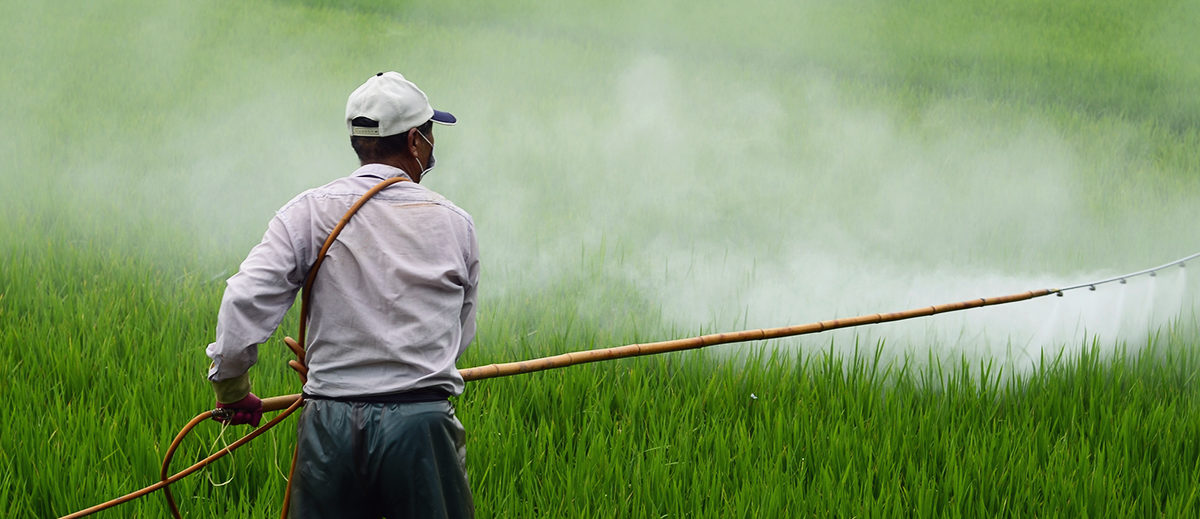
SYNTHETIC AND ORGANIC PESTICIDES : THEIR IMPACT ON AGRICULTURE
Pesticides are substances that are meant to control pests, including weeds. There are several types of pesticides like herbicide, insecticides, nematicide, molluscicide, piscicide, avicide, rodenticide, bectericide, insect repellent, animal repellent, anti microbial and fungicide. The most common of these are herbicides which account for approximately 80% of all pesticide use. Pesticides can be defined as any substance or mixture of substances intended for preventing, destroying or controlling any pest including vectors of human or animal disease, unwanted species of plants or animals, causing harm during or otherwise interfering with the production, processing, storage, transport or marketing of food, agricultural commodities, wood and wood products. The term includes substances intended for use as a plant growth regulator, defoilant, desiccant or agent for thinning fruit or preventing the pre-mature fall of fruits.
IMPACTS OF USING SYNTHETIC PESTICIDES ON AGRICULTURE
Tremendous benefits have been derived from the use of synthetic pesticides in agriculture, a sector upon which the Indian economy is largely dependent. Improved productivity is one major benefit. The food grain production, for example has increased manifold due to use of proper agricultural chemicals. Protection of crop losses is another important benefit. Severe infestation of weeds particularly in the early stage of crop establishment, accounts for a yield-reduction of 40%. Application of herbicides prevents yield-reduction. Quality of food, like that of fresh fruits and vegetables is often made better by controlled use of herbicides.
However, there is a darker side of the picture, too. Ideally, a pesticide must be lethal to the targeted pests but not harm non-targeted species, including Man. Unfortunately this is not the case. So the controversy regarding use and abuse of synthetic pesticides is gaining momentum with each passing day. The rampant use of these harmful and often poisonous chemicals for more and more yield is playing havoc with the health of human and other life forms.
ORGANIC PESTICIDES : IT’S TIME TO SWITCH TO A LESS-HAZARADOUS APPROACH
Owing to the harmful effects of synthetic pesticides, farmers in many places are trying to use organic pesticides. Organic pesticides are pesticides made from naturally occurring substances or self-made mixtures made from organi soaps and/or ethanol. Some examples of organic pesticides are garlic, onion, crushed tomato leaves, Sabadilla, tobacco water, snuff, Rubarb leaves, neem oil, neem leaves, cowdung, etc. Farmers in Kerala have formulated organic pesticides to manage various pests including Borers, bugs and caterpillars. One popular decoction is made by using cow urine, dung and neem leaf paste while another is made by combining Custard apple, leaves of papaya, guava and pomegranate with neem leaves and cow urine. Along with organic , organic fertilisers can be used, too. Organic Fertilisers are derived from animal matter, animal excreta (manure), human excreta and vegetable matter. Naturally occurring organic fertilisers include animal wastes from meat processing, peat, manure, slurry and guano. One prime reason to switch to organic is how it allows farmers to turn agricultural outputs into natural and doesnot affect their health or damage the crops. Natural are healthier, lesd hazardous and more environment- friendly than synthetic products.